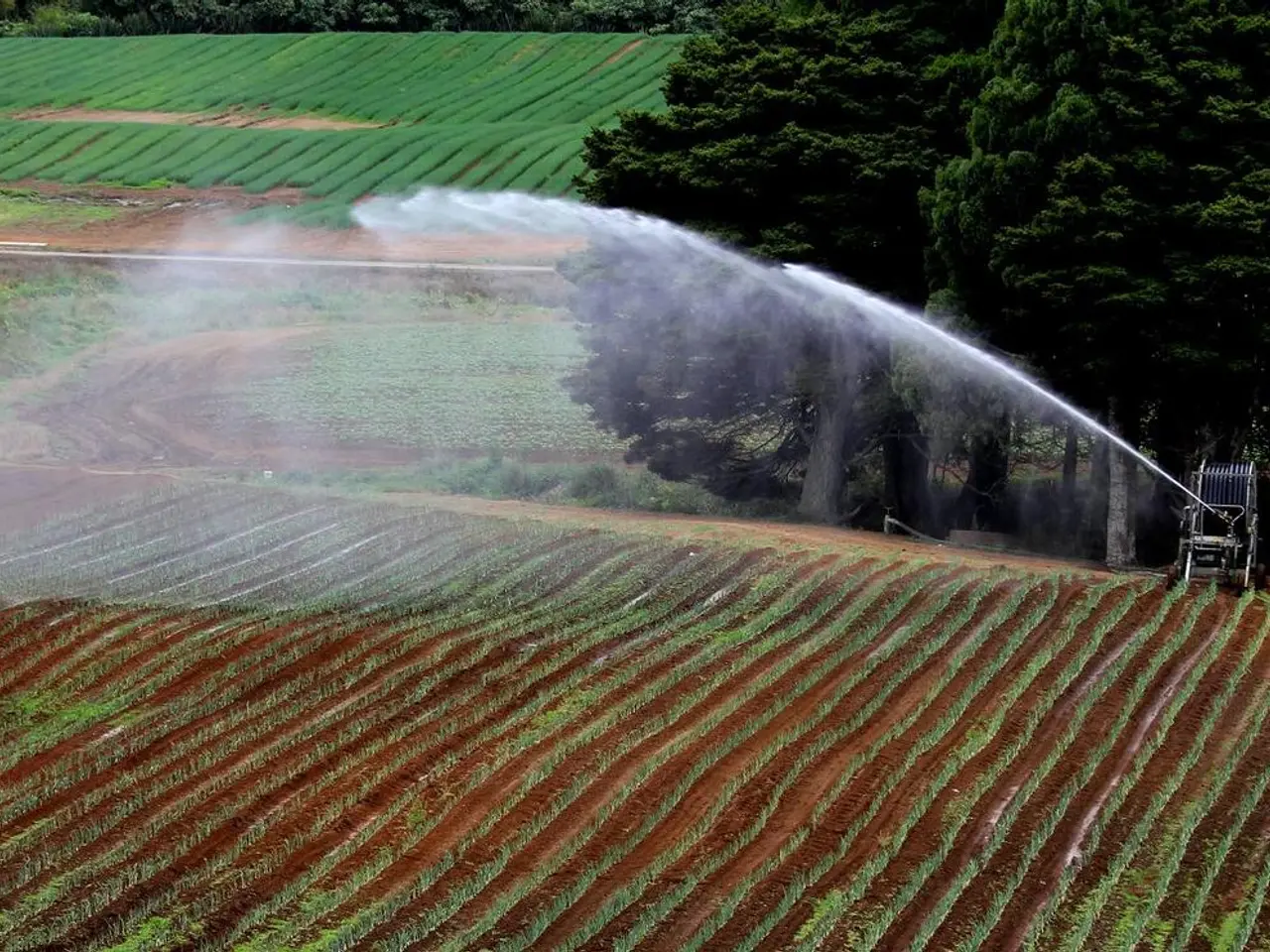Strategies for Fortifying Spring Crop Yields During Drought: Key Insights for Farmers
In the face of increasingly unpredictable weather patterns, farmers in North Rhine-Westphalia are urged to adapt their strategies to better cope with drought conditions. The Federal Information Center for Agriculture has issued a series of recommendations to help farmers navigate these challenging times.
One of the key strategies involves starter-based fertilization. Research has shown that these strategies can be particularly beneficial in drought-prone areas, as they help seeds get a good start even in dry conditions. It is worth considering early fertilizer applications and applying quality fertilizers with an EC37/39 value.
Precision sowing techniques can also play a crucial role. These methods allow farmers to place the rape seed in moist soil layers, providing a better chance for germination and growth. It's also advisable to perform soil preparation shortly before sowing to minimise water loss through evaporation.
In the event of drought, mechanical weed control methods like hoeing and harrowing can be beneficial. Leaf-active substances are also advantageous in drought, as soil herbicides require moisture to work effectively.
The ban on applying fertilizers during soil frost exacerbates the situation, as fertilizer applications often come too late. Regular use of manure, compost, straw, and solid manure can help increase humus content, which in turn improves the soil's ability to retain water.
Soils with high yield potential but poor humus content are particularly susceptible to drought. This is because these soils lack the necessary water-holding capacity. To mitigate this, the Centre recommends increasing irrigation, growing cover crops to reduce evaporation and erosion, promoting biodiversity with beneficial insects, adopting technology like band sprayers and row-specific machinery, and managing weed coverage to maintain soil moisture and protect crops during drought conditions.
These practices aim to conserve water, improve microclimates in fields, and reduce nutrient loss. By implementing these strategies, farmers can help their crops survive in even the driest of conditions, ensuring a more resilient and productive agricultural landscape.
Read also:
- Russia, according to Zelensky, lacks the prowess for launching another significant offensive.
- Amidst India's escalating climate crisis, transgender individuals continue to persevere
- Contentious Discussion Surrounding the Movie Release of "Planet of the Humans"
- Germany's three-month tenure under Merz's administration feels significantly extended








